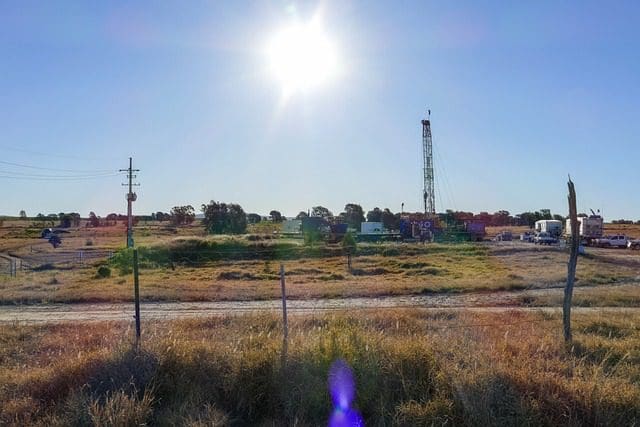When you consider the oil and gas news we hear these days, it wouldn’t be wrong to say that we live in extremely uncertain times.
The impact of oil prices on our gas and energy bills has always been alarming. But in the last few years, we have seen how bad it can get.
While many countries are trying to decrease their reliance on fossil fuels, only a few manage to do so successfully. On the other hand, numerous countries live in energy poverty and have done so for years. As a result, they lack the development that other nations take for granted.
What is Energy Poverty?
Energy poverty is a term that describes the lack of access to modern energy sources. The term was first used over a decade ago by the World Economic Forum, but not much has been done about it.
According to Oilman Magazine, approximately a billion people live without electricity. This number includes those who have access to electricity but cannot afford the price.
Access to affordable energy is also not evenly distributed across the world. This is why we see such a radical difference between developed and developing nations.
Poorer countries are left at a severe disadvantage due to the lack of electricity. This disadvantage only serves to widen the gap between the rich and developing nations of our world.
Let’s take a look at how energy poverty currently affects nations.
How does it Affect Nations?
Energy poverty creates a vicious cycle that keeps nations from developing further.
The lack of electricity across many households prevents hundreds of men, women, and children from improving their lives.
Unhealthy Living Conditions
The lack of electricity in homes leads to the search for alternate fuel sources.
People use wood, coal, paraffin, and kerosene as fuel. Burning these, especially indoors results in unhealthy living conditions due to the fumes they produce.
In particular, women and children suffer the most. This is because these two demographics are more likely to spend time indoors or in close proximity, and continuous exposure increases the risk of respiratory illnesses.
Malnourishment
Energy poverty strongly impacts what families can and cannot cook.
Often, families will try to conserve fuel and not use it much for cooking. This will limit what they can cook, often compromising nutrition for affordability and convenience.
This leads to malnourishment in children, which, in turn, affects their growth.
High Levels of Unemployment
If there is no electricity in an area, there will also be few employment opportunities.
This is because industries cannot build factories or plants where there is no current infrastructure for electricity. As a result, people have to travel further for jobs.
Despite that, many of them cannot leave their hometowns, and even if they did, they would only be able to find low-level jobs owing to their lack of education.
Lack of Education
Education is one of the pillars of a developing nation.
It gives a child the opportunity to rise above their current circumstance and make a positive change toward their future and that of their family.
However, the lack of electricity inhibits a child’s ability to learn. First, it makes it harder for schools to give their students the necessary resources. Secondly, the lack of electricity at home limits the amount of time students may have for homework and studying.
This puts an incredible amount of pressure on children, and the lack of proper nutrition further keeps them from reaching their full potential.
Consequently, energy poverty prevents development and advancement at every level.
This cycle continues to feed the problem, and until people have access to electricity, they cannot improve their situation.
A country can’t develop further until it can help its people progress.
How Fossil Fuel Energy Can Help
The Industrial Revolution was made possible by energy from fossil fuels, which set the path for human progress.
According to the United Nations, fossil fuels still account for 80% of the world’s energy production today. But as we all know, this also has a massive impact on climate change.
The rise in carbon emissions worldwide has made our futures uncertain, though it has also provided an opportunity for countries that experience energy poverty to start making progress.
Renewable energy is something that many developed nations are working toward. But for countries that don’t have enough energy to meet their needs, renewable energy is an even more expensive option that they can’t afford.
This was a hot topic at the recent COP27 climate change negotiations.
Representatives from developing countries say they should still be allowed to use fossil fuels to improve their people’s standards of living. It will enable them to take steps to build their nations in terms of education, employment, and health.
In turn, this will put them in a better position to make future changes to combat climate change.
These developing countries know they can’t grow and help their people if they don’t use fossil fuels. No current alternatives or other affordable energy sources can help bring about the necessary socioeconomic changes.
Conclusion
If you look at any oil magazine or oil news today, you will see the demand for crude oil in developing countries. This is because it is the only affordable way to help them move their countries forward.
Energy poverty is a massive global problem that only gets bigger over time. As access to electricity propels nations and technology continues to develop, countries that suffer from energy poverty fall further behind.
They are stuck in a cycle that keeps them from progressing. The lack of proper education, healthcare, employment, and nutrition can all be fought using fossil fuels.
These countries will be able to improve living conditions and prospects for their people and ensure a better future.





